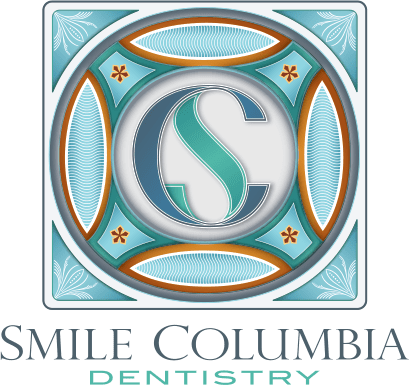Many people are surprised to learn that TMJ disorder doesn’t just cause jaw pain—it can affect your entire nervous system. If you’re dealing with strange symptoms like ringing in your ears, dizziness, or tingling in your fingers, the root cause might be your temporomandibular joint.
At our Columbia, SC TMJ practice, we help patients uncover the hidden connections between their jaw alignment and neurological symptoms, and guide them toward long-term relief.
How the TMJ Connects to the Nervous System
Your temporomandibular joint (TMJ) sits close to several important nerves, blood vessels, and muscles in the head and neck. When this joint becomes inflamed, misaligned, or overworked, it can compress or irritate nearby structures—leading to symptoms that seem unrelated to your jaw.
These symptoms are often the result of nerve pressure, muscle tension, or disrupted signals between your jaw and brain.
Tinnitus and TMJ: Why You Hear Ringing in Your Ears
Tinnitus—persistent ringing, buzzing, or whooshing in the ears—is one of the most common neurological symptoms linked to TMJ disorder. This occurs because:
- The trigeminal nerve, which is involved in jaw movement, also interacts with areas of the brain that process sound.
- TMJ inflammation may compress the auditory canal or nearby tissues.
- Muscle tension in the face and jaw can transmit vibrations that are perceived as internal noise.
In some cases, patients experience pulsatile tinnitus, where the sound seems to follow the rhythm of their heartbeat. TMJ treatment often reduces or eliminates these sensations.
Dizziness, Vertigo, and Balance Problems
Have you ever stood up and felt the room spin? Or felt off balance without explanation? This may be related to your jaw joint.
The TMJ is located close to the vestibular system, which governs your sense of balance. Dysfunction in this area can cause:
- Lightheadedness
- Motion sensitivity
- A floating or disconnected feeling
- Sudden episodes of vertigo
Patients often mistake these issues for inner ear infections or neurological conditions—when in reality, a misaligned bite may be to blame.
Tingling or Numb Fingers: TMJ and Nerve Impingement
While it may seem far-fetched, there is a strong connection between TMJ disorder and symptoms like numbness, tingling, or burning sensations in the hands or fingers.
When your jaw is out of alignment, it affects your head and neck posture—sometimes causing nerve compression in the cervical spine or shoulders. This can lead to:
- Carpal tunnel-like symptoms
- Hand weakness
- “Pins and needles” in the arms
Correcting jaw alignment can relieve pressure on the spinal nerves and reduce these radiating symptoms.
The Psychological Effects of Tinnitus and TMJ
When symptoms like ringing in the ears or balance problems become chronic, they can take a toll on your mental health. Many TMJ patients experience:
- Anxiety or panic related to their symptoms
- Sleep disruption
- Difficulty focusing
- Fear that their symptoms are neurological or untreatable
The good news is that many patients find relief once the root cause—TMJ dysfunction—is properly addressed.
TMJ Treatment Can Address the Source, Not Just the Symptoms
At our Columbia, SC office, we offer neuromuscular TMJ treatment that focuses on correcting the alignment and function of your jaw to reduce nerve compression, muscle strain, and inflammation. Treatment options may include:
- Orthotic appliances
- Bite adjustments
- Neuromuscular diagnostics
- Postural corrections
- Advanced imaging and analysis
When to Seek TMJ Care for Neurological Symptoms
You should contact us if you’re experiencing:
- Ongoing ringing or buzzing in your ears
- Unexplained dizziness or vertigo
- Tingling or numbness in your hands or face
- Headaches paired with jaw pain or clicking
- Symptoms that worsen when you chew or talk
These symptoms may not be “in your head”—they may be in your jaw.
Find Relief From TMJ-Related Neurological Symptoms in Columbia, SC
If doctors have ruled out other causes and you’re still searching for answers, it’s time to evaluate your jaw. TMJ disorder can affect far more than your bite—it can disrupt your entire nervous system.
Call (803) 781-9090 today to schedule a consultation with our TMJ care team in Columbia, SC. Let’s find the root cause and start your path to real relief.





